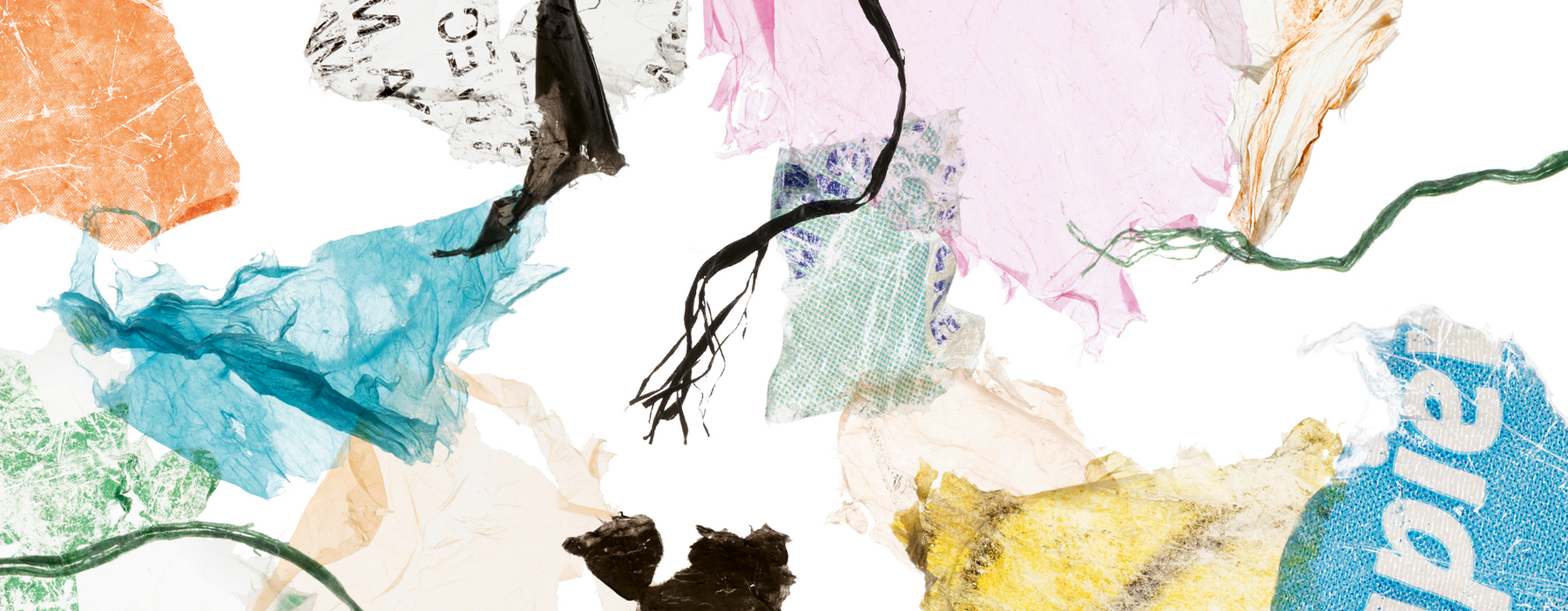
The new shape of plastic recycling
China’s refusal to be the world’s garbage dump has upended Germany’s waste-management industry. Some people can smell opportunity in Europe’s rubbish
The Schwerin waste washer
• In July 2017 the Chinese environment ministry told the World Trade Organization that imports of 24 types of solid waste would be banned from the end of the year. Waste-disposal firms, politicians and journalists across the world fretted about what should be done with all the rubbish they used to send to China. But in Schwerin, in northern Germany, Michael Hofmann was jumping for joy. “China’s exit is a gift,” he says.
His plastics recycling firm, Folienveredelung Hamburg, has a big workshop on an extensive industrial estate surrounded by woods near the city of Schwerin. The business has 55 employees and an annual turnover of €12m-€15m (£10.7m-£13.4m). Hofmann, 59, fishes some plastic packaging covered in labels out of the stinking rubbish riding up a ramp in front of him. It is precisely the kind of waste that China is no longer willing to accept. “This is not waste,” he stresses, “this is a raw material.”
Machinery here converts rubbish into plastic granules, which can be used as raw materials to make wrappers, agricultural foil, bin bags or tarpaulins. At the heart of the plant is the so-called hydro-dynamic washer, patented by Hofmann. It cleans and shreds the plastic at lightning speed. The snippets are then dried, sorted, melted and converted into the recyclate that Hofmann sells.
So far, it is not big business. Plastic recycling is still a niche market in Germany, says Hofmann, but he believes that is about to change. “The waste-management industry is undergoing a change as huge as any other in the history of German industry.” He is euphoric because after some tough years, his firm’s services have now become highly sought-after.
Hofmann actually started off in the timber industry. As a young engineer he saw many small producers going bankrupt when new technology revolutionised the compression of the waste wood used to make chipboard. The small firms were forced out of the market by the few big concerns that were using the new technology.
Ten years ago, Hofmann switched industries. Hoping that superior technology would be as profitable with plastic as with waste wood, he developed the waste-washing machine. Soiled waste is one of the biggest challenges for recycling. Recycled materials have no chance in the market unless processing the waste is not too expensive and the raw material obtained is of similar quality to the original. Hofmann thought his invention offered the definitive solution. But then other problems cropped up. The biggest was the wide gulf between the plastics industry and those processing the waste. “They simply did not communicate at all,” says Hofmann. “So the recyclers did not know what demands the industry placed on the raw material and the industry took no account of whether their kind of processing would later present the recyclers with almost insurmountable problems.”
Another obstacle was that for a long time plastic waste was not seen as a social problem because it could be sold abroad for good money. As a result, a large proportion of Germany’s plastic waste was either exported or incinerated, whereas German recyclers, medium-sized firms with a turnover of €10m-30m, were left struggling without the money to invest in new plant and technologies.
However, things are changing. Plastic’s bad press is occupying the minds of politicians at national and European level and putting increasing pressure on companies that produce or use plastic. The recycling industry has been jolted into action and China’s import ban has massively stepped up the pace of change.
So are we moving closer to a solution to the environmental problems caused by plastic? And if so, who will be the winners and losers?
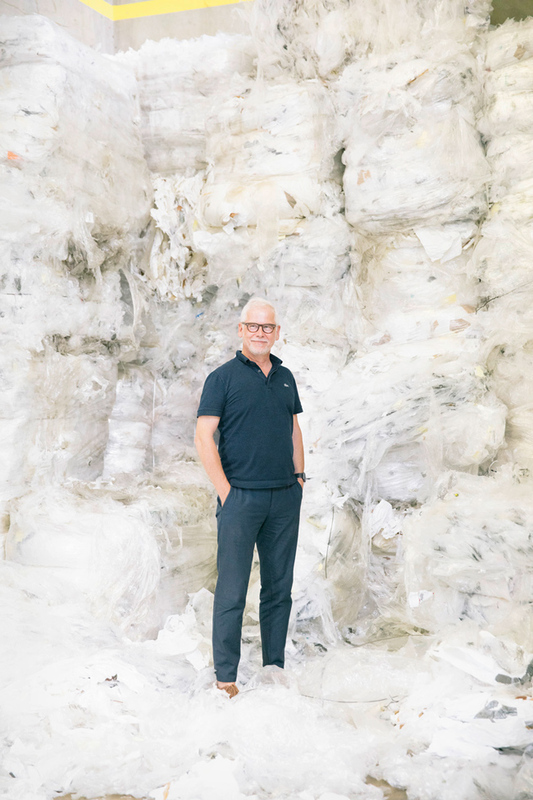
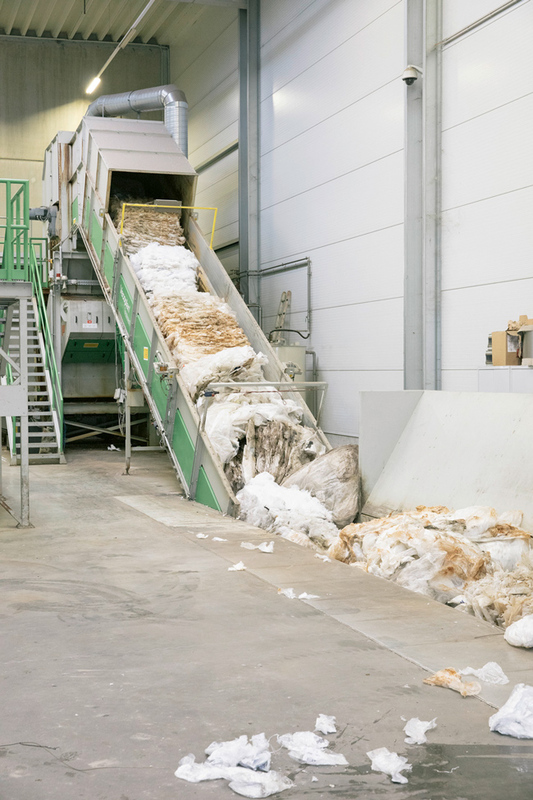
Transformed market
Nowhere in the world is there as much recycling as in China. Cheap labour means it can afford to sort waste by hand. In the past China imported vast quantities of waste. Even though the country has increased its own production of oil, it still lacks enough to produce the polyethylene, polypropylene, polyvinyl chloride (PVC), polyethylene terephthalate (PET) and other plastics it needs. In 2016 it bought about 7m tonnes of plastic waste (more than half of the worldwide volume) and processed it into a secondary raw material in the country’s own factories instead of paying a lot of money for new raw plastic sourced from abroad.
That had a huge impact on the German waste-management industry.
A look at the various players explains why China’s import ban triggered dismay in some and joy in others. At the start of the recycling chain are firms such as the Lobbe group that sort waste. It had a turnover last year of about €300m and operates two of the most modern plants in Europe, one at its headquarters in Iserlohn, near Dortmund; the other with a partner in Gernsheim, south of Frankfurt. Lobbe is supplied with waste by firms working in Germany’s “Dual System” of recycling. Started in the 1990s, this organises the disposal of manufacturers’ packaging from the yellow sacks and rubbish bins of private households in parallel with municipal waste collection. It is funded by levies on trading companies and producers, which can then display the “green dot” environmental symbol on their goods.
Tins are sorted with tins, aluminium with aluminium and an infrared scanner at the sorting plant separates out various kinds of plastic and compresses them into homogeneous bales. Lobbe can then sell this secondary raw material. Until recently it fetched a good price because there was high demand from China. Germany sold about 760,000 tonnes a year to China and Chinese buyers paid the highest prices. But the quality started to deteriorate, because it was possible to sell the poor stuff. Control systems were inadequate. Badly sorted, a lot of it was unusable.
So in 2017, authorities in Beijing decided on sweeping measures: only very clean production waste would be allowed into the country. China also built factories in Indonesia, Thailand, Malaysia and Vietnam to process the dirtier plastics and supply the secondary raw material. Nowadays, Germany and other exporting countries still ship part of their plastic waste to countries in south-east Asia, but they cannot get rid of nearly as much of it as they used to send to China. That has hit the price for sorted packaging waste, to the detriment of the manufacturers who now have to pay more to dispose of it and also of sorters such as Lobbe, which get less for their plastic bales.
But those further down the recycling chain are benefitting, such as MTM Plastics in Niedergebra, in central Germany. MTM, a plastics recycler with annual turnover of about €30m and one of the leading firms of its kind in Germany, buys used polyethylene packaging (shampoo bottles and sweet bags) and polypropylene (such as yoghurt pots), and plastic from collections of bulk household and commercial waste to process it all into recyclate.
In the past it was difficult to get hold of good starting material, says MTM’s managing director, Michael Scriba. They had to make do with waste of inferior quality and even then there was not enough of it. “There were times when our plant was at a standstill and we were in the red.”
China’s 2018 import ban has transformed the situation. In the market the tide has turned. MTM Plastics and other recyclers, including Hofmann, can take their pick of the best waste and are paying 30% to 50% percent less for it. They can even charge for accepting low-quality waste.
Hofmann gets his waste cheaper and the granules he produces are precisely what China needs. “Instead of importing dirty waste like they did before and then sorting the high-quality waste by hand, the Chinese now come here and buy finished secondary raw material.” If he had the capacity, he could sell 20 times as much, he says. “The demand is there.”
But Hofmann has another reason to be euphoric: “Since the Chinese ban, the plastic problem has been very present in the media, in the political arena and with the consumer.” Although pollution of the oceans has long been an issue, “for a long time it was not taken really seriously.” But now things have changed. He can tell that by the number of people who have visited his works in Schwerin since the beginning of the year: delegations from big companies, which are now going in for the secondary raw materials business in a big way.
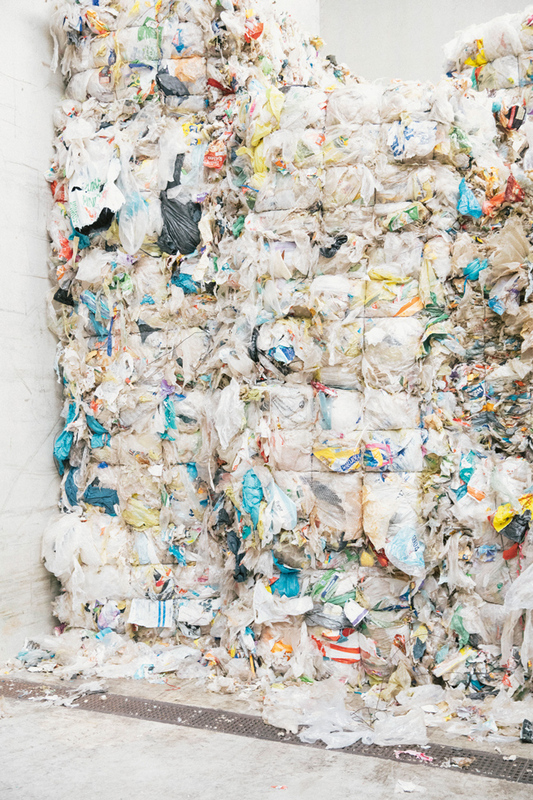
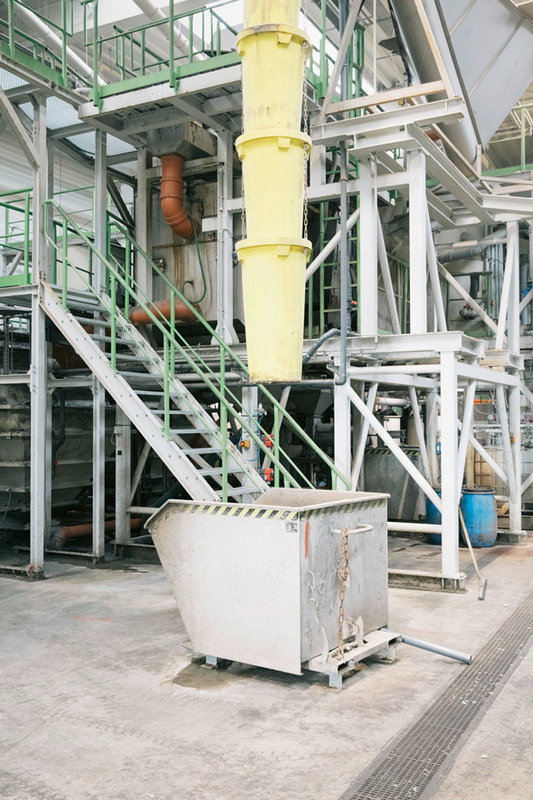
New adversaries
There is a lot going on. In August 2018, the retail discounter Aldi announced that by 2022 it would use only completely recyclable packaging for its own brands. At about the same time, Adidas promised that by 2024 it would use only recycled plastic for all products. Few brand-name manufacturers or food retailers are not concerned about their image.
Aldi’s rival Lidl is a frontrunner of the new movement. According to the German trade journal Euwid, the Schwarz group, to which Lidl belongs, will probably introduce its own dual system from 2020 and challenge Germany’s “green dot” operator DSD for market leadership. That means that instead of paying lots of money to have its packaging waste processed, Lidl is going to take on the job itself.
For this reason the discounter has swallowed up Tönsmeier, the fifth-largest disposal firm in Germany, and thus become the operator of several sorting plants. If the experts are right, it means more than just one new powerful player in the waste-management industry. It means that recycling plastic is likely to take on far greater importance. Up to now the huge effort required for recycling plastic waste has been a major problem. When steak has to look fresh after two days in the chill cabinet and mince has to keep for weeks, then such food is packed in barrier film consisting of several wafer-thin layers made of different materials. In order to recycle it, each layer has to be separated out, which requires a special technique.
“The manufacturers of plastic products naturally think in economic terms,” says Thomas Pretz, professor of processing and recycling at Aachen University. “Instead of using pure plastic, they often mix it with less expensive fillers, using just enough to achieve the characteristics they want.” This mixing also makes reprocessing more difficult.
Waste-management trade associations are demanding that recyclability be considered right from the start of packaging design and that the federal government should introduce rules to that effect. Pretz does not see that as a promising path. He expects the new interest from food retailers and manufacturers to have more impact. “A company like Lidl is in a position to exert pressure on the packaging industry and to demand that its suppliers use recycled plastic,” he argues. As a stakeholder in waste-reprocessing firms, it would even make money from it.
All companies involved with plastics are aware that a new era is dawning. The chemicals company Borealis has taken over two recycling firms: MTM Plastics in 2016 and Ecoplast in Austria this summer. Both are now investing heavily in modernising their plant. The new competition is also giving the industry a shake-up. A few weeks ago, Hofmann’s company was bought out – by Lobbe. Its sorting business is suffering from China’s import ban and facing a tough competitor in Lidl. It is understandable that Lobbe wants to secure a place on the booming side of the reprocessing chain. Michael Wieczorek, head of Lobbe’s waste-management division, says: “We will gradually expand capacities in Schwerin.”
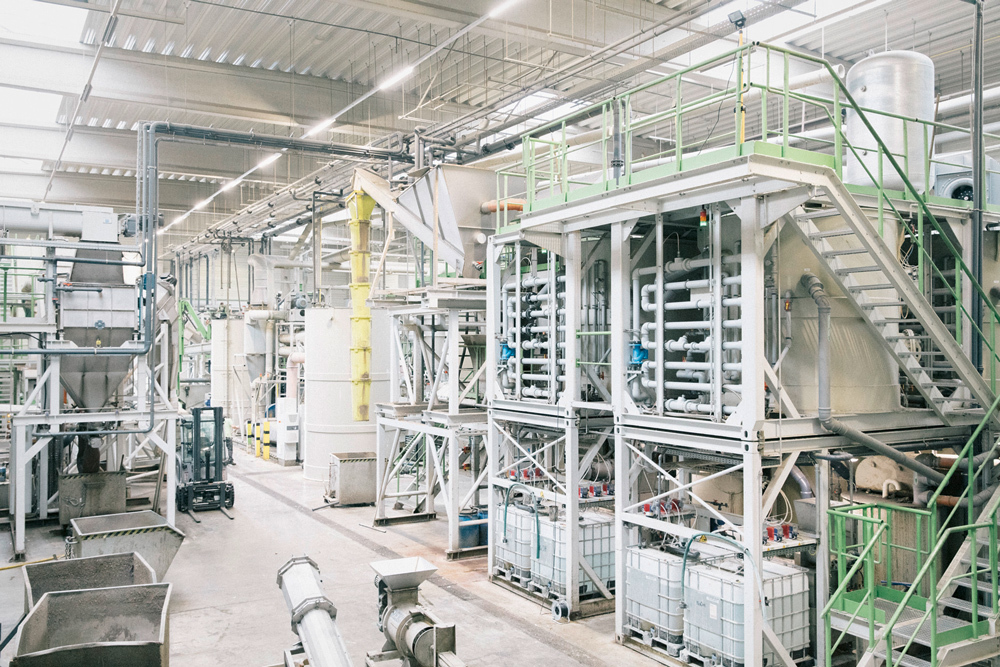
Environmental questions
Will that solve the problem? In 2008 the EU outlined a five-tier hierarchy for managing waste. Recycling was ranked third, below waste avoidance and reuse, such as Germany’s bottle-deposit system.
Hofmann sees the demand for waste avoidance as utopian. “We will not fundamentally change our lifestyle,” he says. “We need plastic, but we must close the circle so that as far as possible we use all our waste for new products.” Until recently he would not have dared to say that. His industry was too insignificant and the manufacturers were too ignorant. Producers need high-quality, homogeneous primary material available at any time and the recyclers just could not supply that.
In fact, lack of capacity means they still cannot, but by now it just seems a matter of time. The EU clearly sees it that way, too. The Chinese import ban has prompted the EU to adopt a new strategy for plastics: from 2030 all plastic packaging in the EU market must be recyclable. Germany’s new law on packaging, due to come into force in 2019, also points in the same direction. The recycling quota for plastic packaging is scheduled to rise from its present 36% to 63%. Pretz thinks this target is “sporty, but in view of recent events not impossible”. The environmental problems would not be eliminated, but they would be reduced.
Hofmann is reminded of the old recycled paper situation. “While it looked dirty grey, there was little demand.” But then an innovation known as de-inking made it possible to have white recycled paper. And that, supported by bulk products such as copier paper, has boosted usage to 80%. Hofmann is hoping that his waste-washing machine will lead to a similar breakthrough. He deliberately specialised in cleaning and processing plastic film. Only 1.5% is currently recycled, globally; yet with about 70m tonnes produced every year, it accounts for a third of total plastic waste.
Hardly any firms dare to tackle this because plastic film from household waste is not just a problem because of its mixture of materials but also because of the large surface in proportion to its mass that has to be cleaned of serious contamination – a huge effort for little raw material. Nonetheless, Hofmann promises, “our technology will deal with it and in the most economical way in the world.” That is why so many delegations from Europe, the US and Asia are going to Schwerin. They want to see if it really works and some of them, particularly the Chinese, would like to acquire a stake in the firm, too.
It is not clear if Hofmann’s machine will revolutionise the industry. He concedes that a lot will happen technologically in the near future. But he is sure of one thing: “In the years to come recycling plastic will become big business and so trigger a fight for the raw materials.” The question will no longer be “what do we do with the waste?” but “who will corner the market in it?”